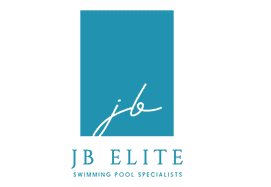
An overflowing swimming pool may cause only minor problems if you’re lucky, particularly if the volume of excess water is small and will evaporate or can be easily swept away. However, a more serious overflow can cause significant problems, with immediate remedial action necessary to restore the correct water level and ensure the appropriate chemical balance in the pool.
The Effect On Water Chemistry
Preventing the growth of bacteria and algae in home swimming pools is essential to protect your family from infection, which is why sanitising agents are used, but it’s also necessary to ensure that the pH level of the water is correct (7.2 – 7.6). pH levels that are too low can trigger unpleasant symptoms, such as itchy skin and burning eyes, and can also cause pool liners to become fragile and crack. If a swimming pool overflows, the chemicals in the water will be diluted making it harder for the sanitiser to kill harmful bacteria.
If your swimming pool overflows, it will be necessary to correct the pH and ‘shock’ the water with chlorine before, after shocking the pool we recommend you avoid using the pool for 48/72hrs or when you have check the pools chemical levels are back at a normal level. A test kit must be used to check the levels, this can be a time-consuming and delicate task that requires considerable patience, but one that must be conducted accurately to ensure your pool is safe to swim in.
Excess Water Outside The Pool
A minor flood is less problematic if you have good drainage installed in your pool deck but, if the overflow is more serious, water damage to items around the pool may occur. Excess water should be swept off the deck, or pumped out if necessary, particularly from low-lying areas of the garden.
An overflowing swimming pool often results in debris being sucked into the water from the pool deck, particularly in severe weather. Contaminated water will need to be treated and cleaned thoroughly, while it may also be necessary to clean or replace the pool filter media. If your pool has been flooded from a burst river or drain, the water is likely to be highly contaminated with effluent from sewers and fields. Please contact one of our pool maintenance specialists for advice on how to proceed.
High Water Inside The Pool
Pool skimmer and filtration pump systems work most effectively when the water level is approximately halfway up the skimmer, to allow for efficient water flow through the skimmer. If the water level is higher than the skimmer, the system will not operate correctly, so the water level must be returned to normal by removing the excess water.
Several methods can be used to remove excess water from a swimming pool, including siphoning (cheap but slow), a sump pump or setting the multi-port valve on the filter to the waste position.
The Advantages Of Hiring A Pool Maintenance Professional
While you can carry out most of the remedial actions yourself if your swimming pool overflows, it takes time, patience, and commitment to return your pool to optimum condition. By hiring a pool maintenance expert such as JB Elite, you can be confident that your home swimming pool will be ready to use more quickly, with all necessary steps taken to prevent an overflow from occurring again.
To find out more about JB Elite’s swimming pool maintenance services, please get in touch on 01536 909749, or send us a message.

